Intrusive Thoughts wont' stopDon't click on the ad!
Have you ever just been scrolling the internet or social media and you see those ads pop up. they can be flashy, they can have some great one liner hooks I just capture your attention. But whatever you do, do not click on the ad. these ads are like your random thoughts. Those random intrusive thoughts that you don't really want but they just keep coming back anyway. What's worse is that they start joining your everyday life and activities. These ads can be intrusive. If you allow those ads to be there. Actually will slow down and sometimes be non-existent. You just told your computer or your thoughts that these ads have no value in your life and you're simply not interested. When one topic disappears, another may take its place. This new flashy ad seems important. It's new, you're not used to it and it seems highly important for you to pay attention to it. Do not click on the ad! When you're scrolling through social media and moving from page to page, you notice this ad following you. The ads say, you don't really love your partner to you? What if you pushed somebody harmful? What if you're going to get sick now? have you ever thought about this past experience how awful it was? today's the day you need to figure out you were identity? how do you even know there is a God? Your monster and I'll show you why. How tempting would it be to just click on this and once and take a peek. They don't know me! seriously, I'm not that kind of person. I'm starting my faith. I would never harm anyone. I love my partner. Let me just click on this ad so I can see what the fuss is all about. It is so intriguing that this thought goes completely against who I am and I want to figure out why. this is completely natural. I would want to know why my thoughts seem to be against me. I mean I'm just scrolling through social media, I'm just doing my homework, just watching a TV show. These ads are relentless and follow the person anywhere. Do not click on the ad! You have clicked on the ad. here is what is going to happen. This ad that makes you question your partner is now going to show up everywhere. You just taught your brain that this thought or ad has value. It gave it permission to say, "here I am" "here I am" "remember me" "I'm still here" -- thanks for giving me some attention. I'm here to tell you that it has meaning. In the digital world, when someone clicks on an ad, it teaches it that you care and thus they spend more to put that ad more in front of your face. They often call it retargeting. This intrusive thought is retargeting you. The cool thing about these retargets is that if you stop clicking on the ad, they eventually go away. Depending on the budget, it may last a few days. It may last a few weeks. But the thing to always count on is that they will slow down. Who wants to spend "money" or "energy" on someone who simply isn't showing any interest? So if you're not getting what I'm saying. Do not click on the ad and here are some tips to give you better chance. Notice the ads, allow them to be there. Don't use an adblocker. We don't push the thoughts away. We don't try to control them. We let them be. When you're scrolling, you may notice the thought or ad, but your job is to continue scrolling. If you must give the thought a response they can look like this. "hey thought" "welcome" "great to see you" "sure" "maybe" "maybe not" "thanks for the thought today." "You're welcome to stay as long as you want." When we give these responses and you may have to do them a lot. It shows the brain that you've recognized the thought, but aren't giving them much value. It's the "I don't care" attitude. This attitude is the antidote to intrusive thoughts. Allow them to be there, respond differently than you normally would and move forward. Continue living life and do exactly what you want to do. These thoughts may infiltrate various aspects of your day and life but don't stop living. You not stop moving forward. Just like these ads, it got nothing to retarget when you simply give them no value. And as these flashy ads keep switching we treat each one the same way. Not one thought is more important then another. Thoughts are thoughts. Let them be thoughts. We can't ignore the anxiety and distress that come from these thoughts. Just know that these feels tend to be false. it's that extra push for you to click on those ads. Instead, we treat these feelings the same. To me, it's a false signal. Anxiety without immediate danger is false anxiety. It's based on a guess and on a meaning that you've put upon this thought. We can treat this anxiety the same. "hey anxiety" "welcome" "you're welcome to stay" "I love love love these feelings" When our response to anxiety changes. You're putting your arm around it. It learns that as it's freaking out, you're cool as a cucumber. Teaching it to no longer freak out about an intrusive thought. It often doesn't know until you teach it. These ads have nothing on you. You're too powerful. Tell yourself this! Don't click on the ad the next time your intrusive thought demands attention. Act as if you don't care. Welcome it. Acknowledge and move forward. Speaking of intrusive thoughts. You need to enhance your skills even more. I've come up with even more responses to these pesky thoughts. Go watch that video here. It's worth your time!
0 Comments
How long does OCD recovery take?Isn't this the question we have with anything we want to go away in our life? How long will I have this? This question can cause a lot of anxiety to think about and bring a lot of comfort. It all depends on what mindset you have. To jump right into it, recovering from OCD depends on many factors. Do I have the right tools and am using the right treatment? Am I actually using the treatment often? Do I have a strong foundation for therapy? For many, treatment can be relatively quick. Individuals can feel better sooner, while others it may take longer. It also depends on the severity of symptoms. It's already infiltrated itself into your day, we might as well do something with it. I almost hesitate to give a specific number because I do not want you to be your timeline because your timeline is YOURS. Here is what I've heard many specialists suggest their own research. Many can expect to feel recovered between 12-20 therapy sessions and can see a clinically significant decrease in OCD symptoms. Others give a timeline of 2 months. Personally in my own practice, I've seen individuals for a few weeks and others a couple of years. There is not that magical formula that fits each person, but I'll share with you what I see as a standard for individuals getting better quicker. -Using exposure and response prevention the correct way. -Building an exposure hierarchy to help you face your fears in a gradual way -Doing these exposures daily and when I mean daily I don't mean 1x a day. I mean, making it your part-time job. It could be hours. -Simply put. You've got to stop doing compulsions. Even if you're feeling anxiety. -Your focus must be on recovery. It needs to take priority. -You must accept the anxiety, fears, doubt, and guilt and decide they bring no more value into your life. You can't be wishy-washy. "I'll accept this fear, but have to figure out this one." All these things are taught in my online OCD course. I'll link it here. You can even try it for free. Ultimately, who's going to get better quicker. The person who knows the tools and will do them every once in a while or the person who's dedicated themselves to recovery. They recognize the pitfalls, where they can improve and use resources around them. I do want you to know that you can recover from OCD. Things can get better. I also want you to have realistic expectations of what "recovery" means. For some, it may mean they are feeling minimal symptoms. For others, they've reduced symptoms up to 60% and are okay with that. Others may not feel symptoms for weeks, months, years. But here's the deal, this doesn't happen by doing treatment for a few months and then be golden for years to come. It's something you work on to maintain the progress that you've made. So when you hear others say online, "I am recovered" keep this in mind. Here is the most important thing. Your recovery is your own. Your timeline is your own. If you do get caught up in, "how long will this take" you may give yourself an answer like, "it takes as long as it takes and I've accepted this." I want you to get on top of this, you need to go right now watch the 25 tips for succeeding in your own OCD here. Thanks so much for watching and I'll see you next time. How to recover from OCDRecovery from OCDExposure Therapy For OCDWhen somebody is facing their fear, they repeat this process over and over again their body tends used to it. We’ve seen this in many different ways such as jumping into a really cool swimming pool. At the very beginning it is very cold but their body adapts and get used to it. We didn’t have to spend time convincing ourselves it was going to get better, it just happens. This can be seen when we are using exposure and response prevention. When you are exposing yourself to the upsetting fear it’s going to feel very difficult at the beginning. Overtime, you may face the same fear but notice that the anxiety level is a lot less. This is seen as the habituation model. That we essxentially are doing exposures to reduce your anxiety by half or more. You’re getting used to it, you’ve taken the value away from it. When it comes to the habituation model, it’s all about this anxiety reduction in your body adapting just like the swimming pool. We will often use us as a measure of success if you were doing exposures correctly. If you’re anxiety is reducing this is a good thing. There are definitely some drawbacks from using the habituation model. Anxiety is something that we want to take value away from as well. If we are focusing solely on anxiety and having us go up and down individuals can get stuck in paying attention to the anxiety and wondering if they are doing the exposure correctly or not. Let me start obsessing about the actual anxiety versus the actual fear. Many will start to question and wonder why they’re in anxiety is not reducing. Well evidence shows that the habituation model does work, individuals can you get stuck with these pitfalls often. This is why there is another approach to exposure and response prevention called inhibitory learning. While this is still being researched there is evidence that shows that this helps reduce OCD symptoms as well. The difference is not the actual exposure you were doing but rather the way you were approaching it. With the inhibitory learning model you are teaching your brain more than reducing anxiety. Exposures are all about what can your brain learned from this experience. It doesn’t matter if your anxiety reduces or not. It might not even matter if you have anxiety while you’re doing the exposure. The whole mindset is all about your brain learning something new. So if I was facing a fear that really caused some anxiety, the way I approach is designed is to face the fear, expose yourself to it and RESPOND differently to the fear. You sole focus is what am I teaching my brain by every movement, words I’m saying, what I’m thinking, how I’m behaving. If I avoid touching something because it’s contaminated, my brain learned that that thing is dangerous. If I touched it and acted like it wasn’t a big deal and didn’t do any compulsions, then my brain learns it’s not a big deal. You may learn time and time again that you faced your fear and NOTHING happened. That is what the brain is learning. If you’re confused by the two, here is an easy way to remember: The habitual model means your body is getting used to it and your anxiety is reducing. Inhibitory learning model means your mindset is all about what your brain is learning from the exposure regardless of the anxiety felt. Realistically, there isn’t the right choice comes to do an exposures. You do what you feel like is best for you. I have used both models together where I focus majority of my time making sure that the person knows that the brain is learning something. We use anxiety as a measure but ultimately it doesn’t matter if the anxiety reduces or not. If your brain can learn that the fear that you have is not happening and it is it because you’re trying to control the situation what is the compulsions and to me that’s one of the best ways to do an exposure. Let things be. Stop controlling. It feels like an experiment, but the experiment is worth taking for your brain to learn something major. That you’ve never been a danger. Inhibitory Learning For OCDHabituation For OCDMy OCD Feels UniqueYou are not special! WAIT! Don’t don’t run away! I needed to get your attention for a moment. If you leave now you think I’m just a big jerk. Here’s what I mean by this!
So here is what I mean by you not been special. First of all your special. You matter in your feelings matter. Because you’re even watching this video right now it shows a lot of strength. So what I’m really meaning is that the OCD that you are experiencing is not different. Individuals can often think that the topic or theme that they are going through this special, it’s different, no one understands exactly what they are going through, its untreatable, I hear all these videos online I see all this advice but it doesn’t apply to my theme. Errrrrr! Nope! Your OCD is not special or different. This to me is one of OCD’s biggest lies. If it can make you believe that you are untreatable and that you are different from what you are experiencing then it’s got you. Individuals will often tell me that exposures they hear the specific theme just don’t apply to them. That if people really knew all the details of everything there experiencing they would change the treatment. So this is something that is important to note, something to tell your OCD even if you think it is different than everyone else’s to remind yourself that OCD is OCD. That follows the same route as everybody else. It’s making you doubt in question yourself and who you are as a person. It’s making you question the threats in the future and if they can come true or not. It’s giving you an intrusive thought putting a lot of meeting on this thought making you feel anxious that’s wanting you to do something to fix it. Simple as that. When we see OCD simply becomes simple. If you see OCD is complicated, different, or special, than it has the upper hand. To take control is to see it simply. Do not see yourself as different or special. Like I said you as a person are unique and special. Your OCD does not get to join this party. So as you’re seeing the videos that I have, your hearing advice given, and you think it doesn’t apply to your theme. Remember that this is a lie. Give yourself more credit. You can even remind your OCD that it’s not special when it’s trying to take the light. Give yourself the opportunity to do treatment. I know what people say, “but if you only heard what I’m going through you’d be shocked. You would say that mine is different.” Don’t even allow your brain to go there. Instead he focus on living life and enjoying. This tactic the OCDs using is no longer going to be something you fall for. Treatment is available if you’re looking for a specialist. So here’s my question for you, have you ever felt that your OCD is different than everyone else’s? How To Stop Ruminatingmination is essentially trying to problem solve the perceived threat or fear. It’s not as easy to just say, “stop ruminating”, so here are some tips for you when you feel like you’re stuck in the OCD rumination.
Life AFTER OCD | What does it look likeWe often talk about what to do when you're having OCD symptoms. But, what does it look AFTER you go through treatment? Do you stop treatment? Are you cured? Let's go through this so you can have a good perspective of what "recovery" looks like. How To Be Successful With OCD TreatmentIf you're working through exposure and response prevention; these 25 tips are GOLDEN. Originally presented by Fred Penzel, Ph.D. of Western Suffolk Psychological Services. Dr. Penzel gave me special permission to present his 25 tips to you. 🖐🖐Check out my ONLINE self-directed program for OCD🖐🖐 👉👉 https://www.OCDandAnxietyOnline.com 👈👈 25 Tips for Succeeding in Your OCD TreatmentHow to maintain progress OCDHow To Stop A Panic AttackDo you know what to do during a panic attack? Did you know there is treatment? It might look different than you’ve expected. Panic attacks can happen at any time and can often be mingled with stress, anxiety, or OCD. Let’s go through Panic Attacks, why you have them, and what to do with them. What to do during a panic attackTreatment for panic attacksGroinal Response With OCDThe groinal response can seem tricky to navigate through. I mean, people want to put meaning and power on what's happening "DOWN THERE". In response to sexual intrusive thoughts, it is natural to want to know what is happening. With movements, tingling, blood flow, and all of that, how can this be ignored? Let's go through what the groinal response looks like and how to do treatment for it. 🖐🖐Check out my ONLINE self-directed program for OCD🖐🖐 👉👉 https://www.OCDandAnxietyOnline.com 👈👈 Arousal with OCDFear of being arousedWhat is Suicidal OCD?Suicidal OCD is a subtype of OCD. An individual can have intrusive thoughts of suicide. This doesn't mean they are suicidal; but rather OCD causes extreme fears and doubts. It even will mingle these intrusive thoughts this with anxiety; making it feel very real and scary for the person suffering. Suicidal OCD vs. Real SuicideFear of commiting suicide |
AuthorNathan Peterson specializes in working with OCD and Anxiety related disorders and has done so for the past 7+ years. Archives
January 2023
Categories
All
|

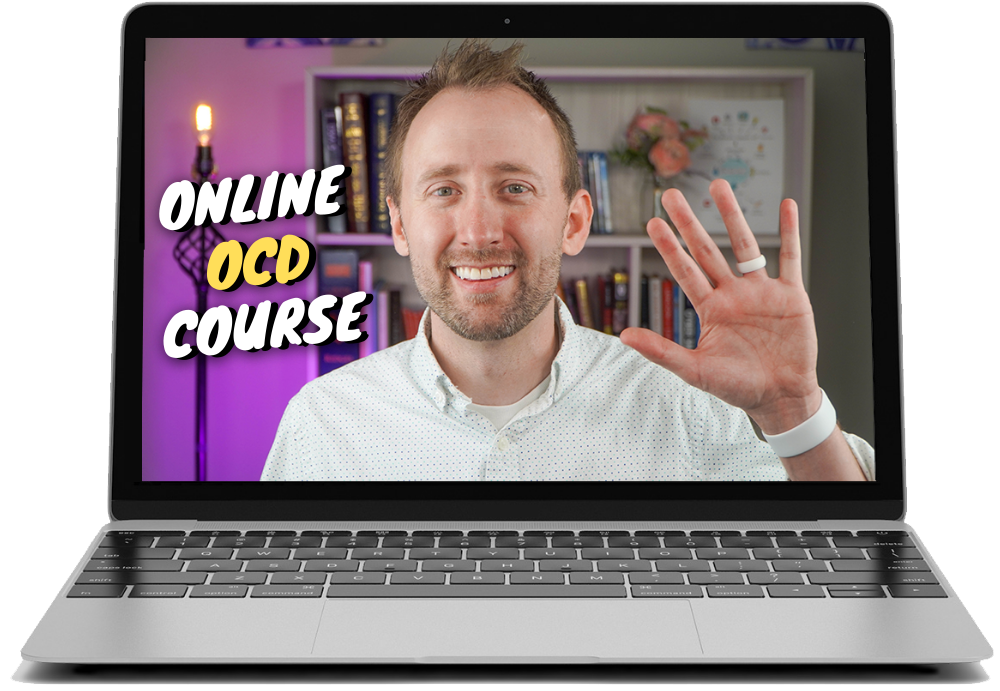
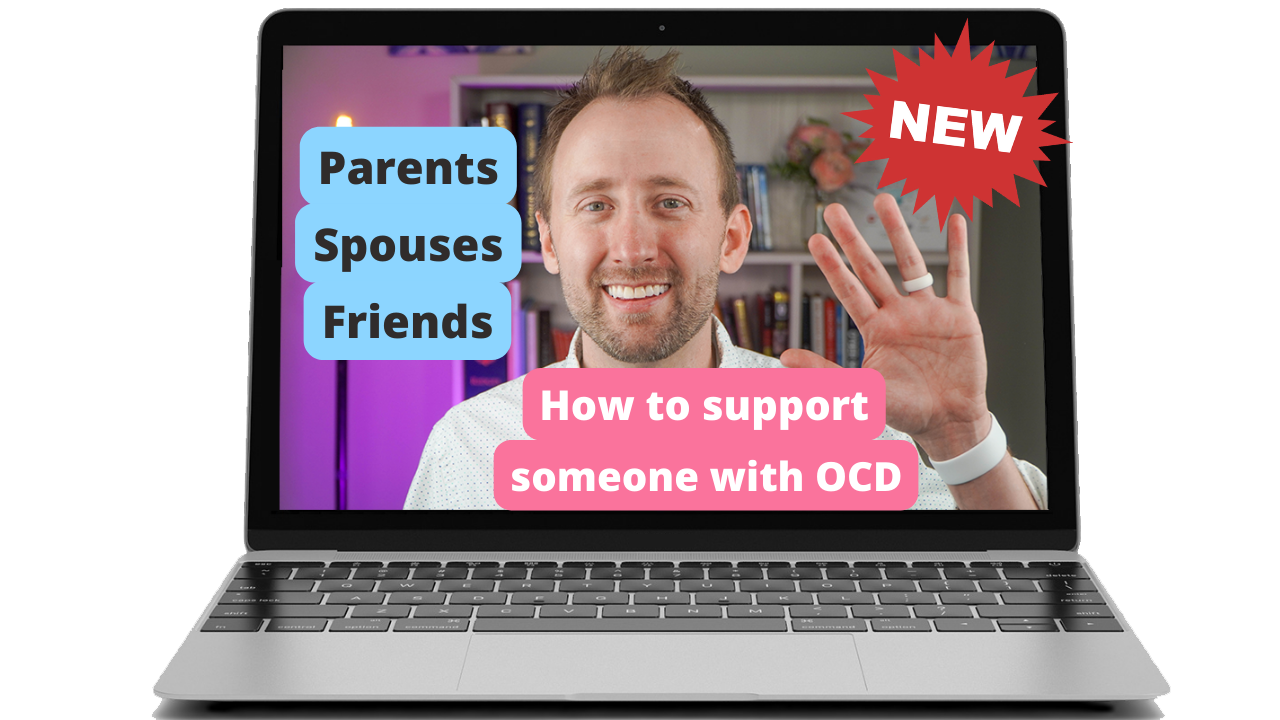
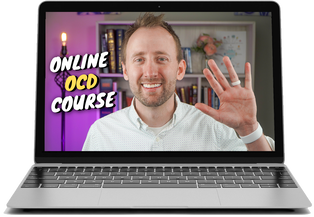
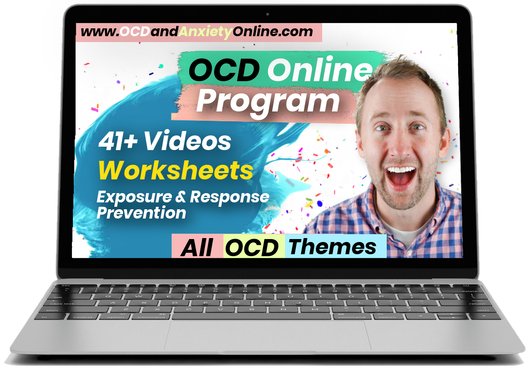
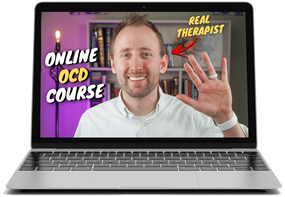
 RSS Feed
RSS Feed